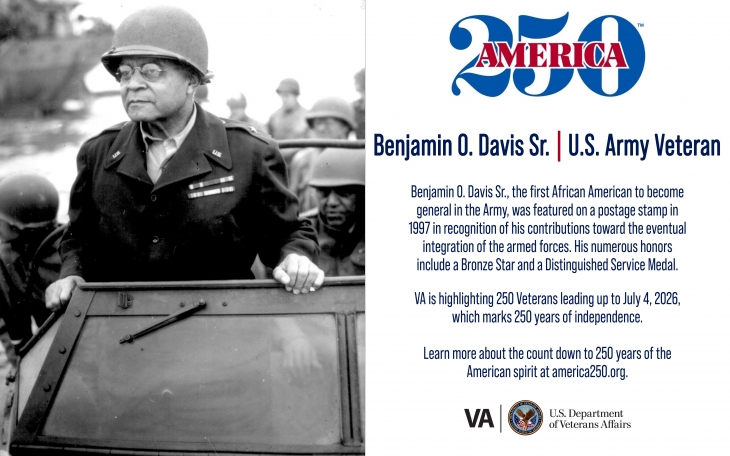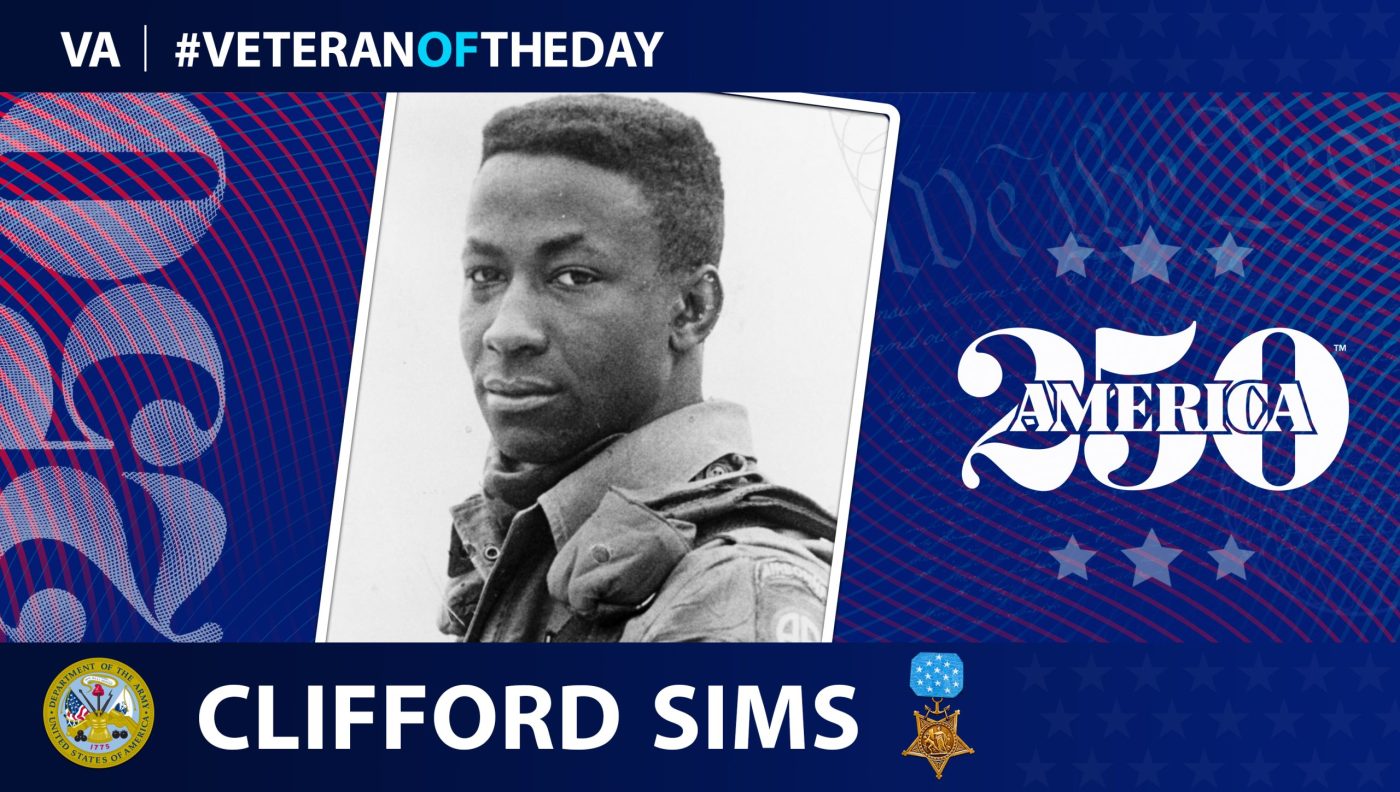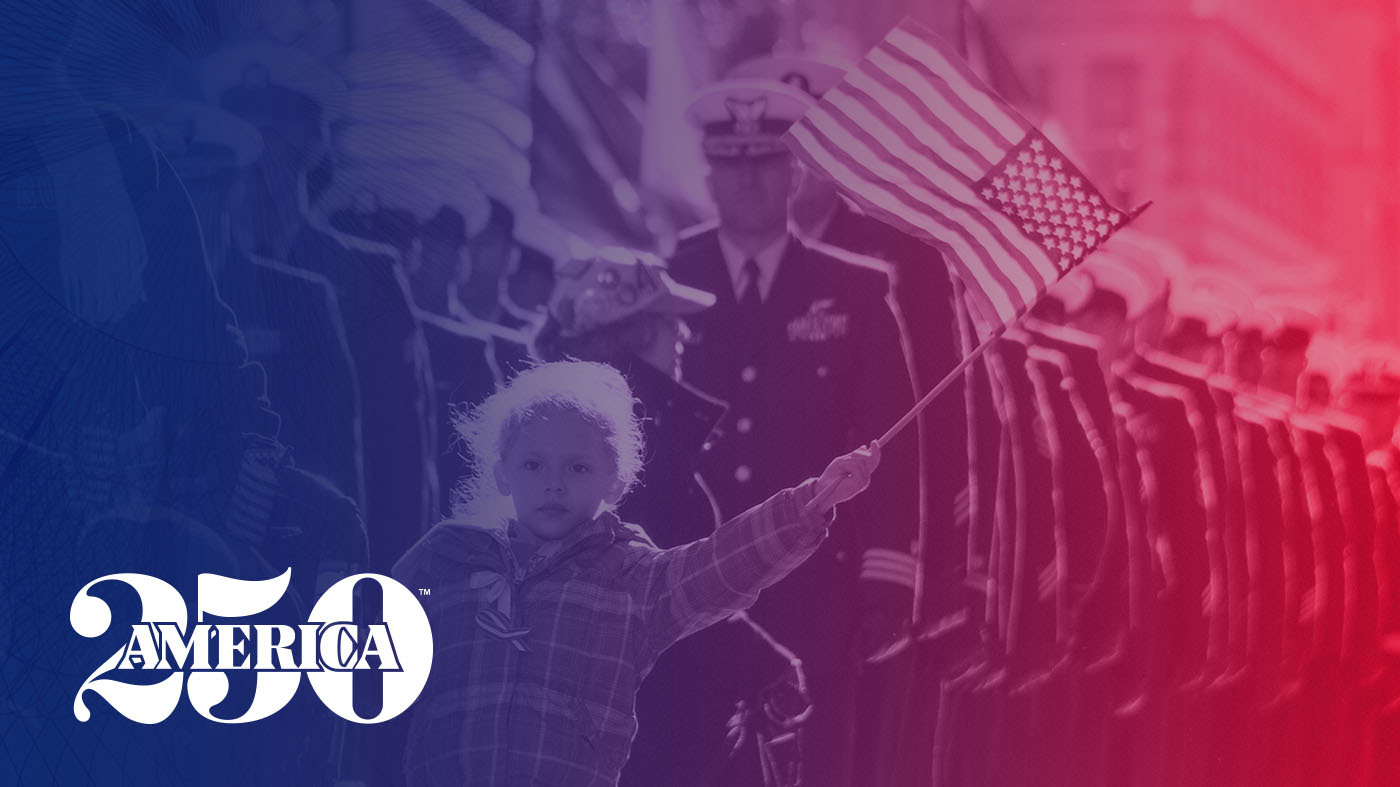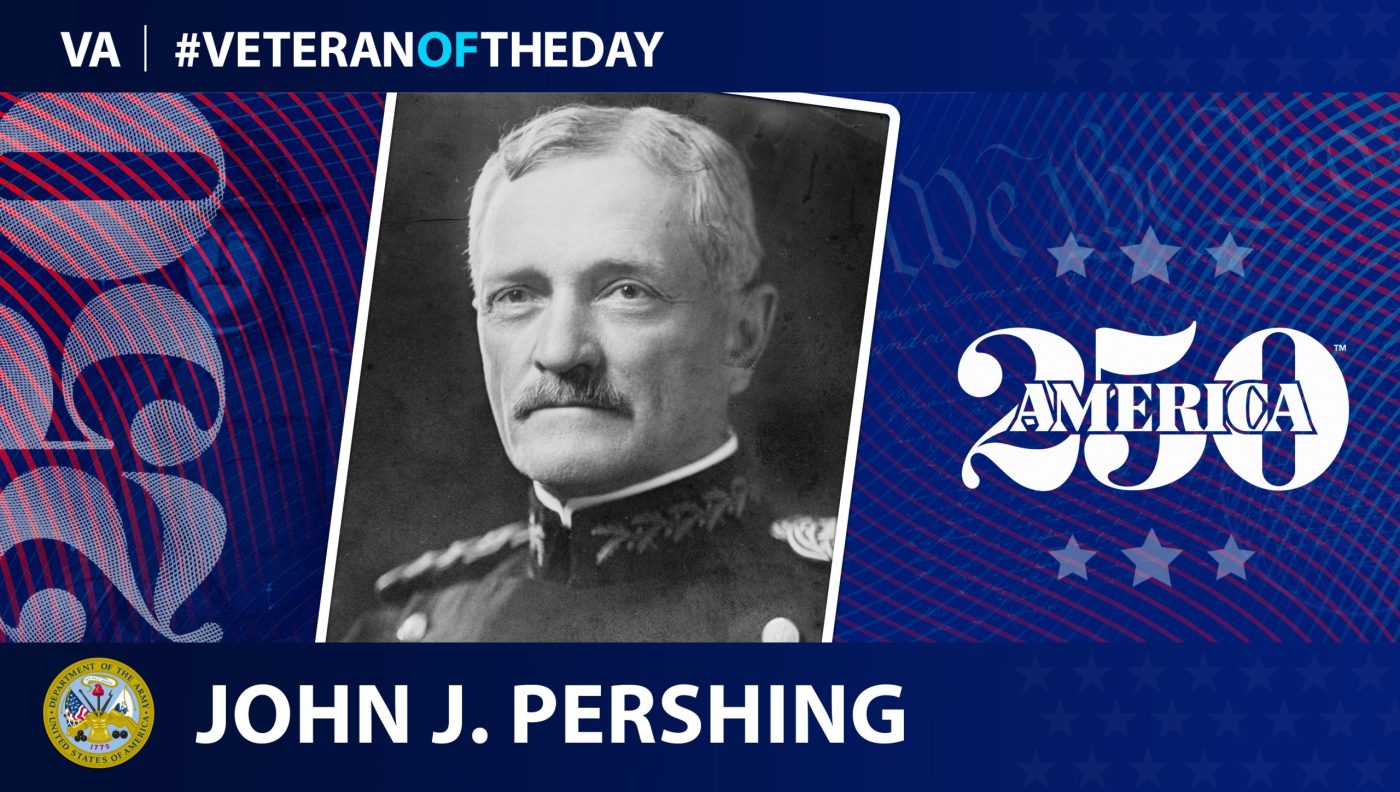
This week’s America250 salute is Army Veteran Benjamin O. Davis Sr.
Benjamin Oliver Davis Sr. was born in Washington, D.C., in May 1880. Although records list his date of birth as 1877, Davis is believed to have lied about his age so that he could join the military without his parents’ permission. His father wanted him to pursue a career in government, and his mother encouraged him to become a minister.
After participating in a cadet training program in high school, Davis joined the Army in 1898, during the Spanish-American War. He served as a temporary first lieutenant in the 8th U.S. Volunteer Infantry Regiment, an all-Black unit stationed in Georgia, until the unit disbanded in 1899. Davis reenlisted a few months later, joining the 9th Cavalry Regiment at Fort Duchesne in Utah. Within a year, he promoted to sergeant major; in 1901, after passing an exam to qualify as an officer, he commissioned as a second lieutenant.
Despite Davis’ excellent record of service, he usually received academic or administrative posts. He was an infantry instructor for National Guard units in Ohio and New York and served as military attaché to Liberia. He also taught military tactics at both Wilberforce University in Ohio and the Tuskegee Institute in Alabama on multiple occasions.
In the early 20th century, the Army was still racially segregated, and these duty assignments were intentionally designed to avoid placing Davis—a Black man—in command of white troops. As a result, Davis progressed slowly through the Army ranks. He earned several promotions, but many of them were temporary, meaning that Davis’s position within the Army command structure was constantly shifting. Davis changed rank five times in five years. He promoted from first lieutenant to captain in 1915; to major in 1917; to lieutenant colonel in 1918; reverted to captain in 1919; and promoted back to lieutenant colonel in 1920. He did not reach full colonel until 1930. Davis promoted to brigadier general until 1940, becoming the first African American general in the history of the Army at the age of 60.
During World War II, Davis served as a special advisor on race relations. In 1942, he went overseas to report on racial tensions within U.S. Army units stationed in Great Britain. In interviews with enlisted personnel, Davis found that white American soldiers resented the fact that British people generally harbored no racial prejudice and treated all American soldiers equally, regardless of their skin color. In his report to his superiors, Davis wrote, “I fear overmuch emphasis is being placed on color in our Army.”
After the war, Davis returned to Washington, D.C., and became an assistant to both the inspector general and the secretary of the Army. In 1948, at a public ceremony presided over by President Harry S. Truman, Davis retired after 50 years in the military.
Throughout his career, Davis received numerous honors. He received a Bronze Star, a Distinguished Service Medal, a French Croix de Guerre with Palms and a Liberian Grade of Commander of the Order of the Star of Africa. Davis held honorary doctoral degrees from Atlanta University in Georgia, Morgan State College in Maryland, and the Tuskegee Institute in Alabama. In 1997, the U.S. Postal Service issued a postage stamp in recognition of his contributions toward the eventual integration of the armed forces.
Davis passed away on Nov. 26, 1970.
We honor his service.
America250
VA is highlighting 250 Veterans leading up to July 4, 2026, which marks 250 years of independence. Learn more about the count down to 250 years of the American spirit at https://america250.org/.
Contributors
Writer: Stephen Hill
Editors: Alexander Reza, Annabelle Colton
Fact Checker: Giacomo Ferrari
Graphic Designer: Grace Yang
Topics in this story
More Stories
Today's America250 and #VeteranOfTheDay honors Army Veteran Clifford Sims, who was posthumously the Medal of Honor.
America250 wants you to share your story. We want to hear the story of your service and your reflections on our nation’s past, present and future.
Today's America250 and #VeteranOfTheDay is Army Veteran John J. Pershing, who became General of the Armies of the United States, the highest rank possible for any member of the United States Armed Forces.







It was not unusual for officers in WWI to be promoted frequently and then, as those were temporary promotions they reverted to their last regular army rank.
For example, George S. Patton, Jr. was a captain when he went to France with Gen. Pershing in 1917. He made major in late 1917, then lt. col. in spring 1918, and finally col. in the fall of 1918 after he was wounded. With the passage of the 1920 National Defense Act, he reverted to captain, then made major a month later. He did not make lt. col. again until 1936!